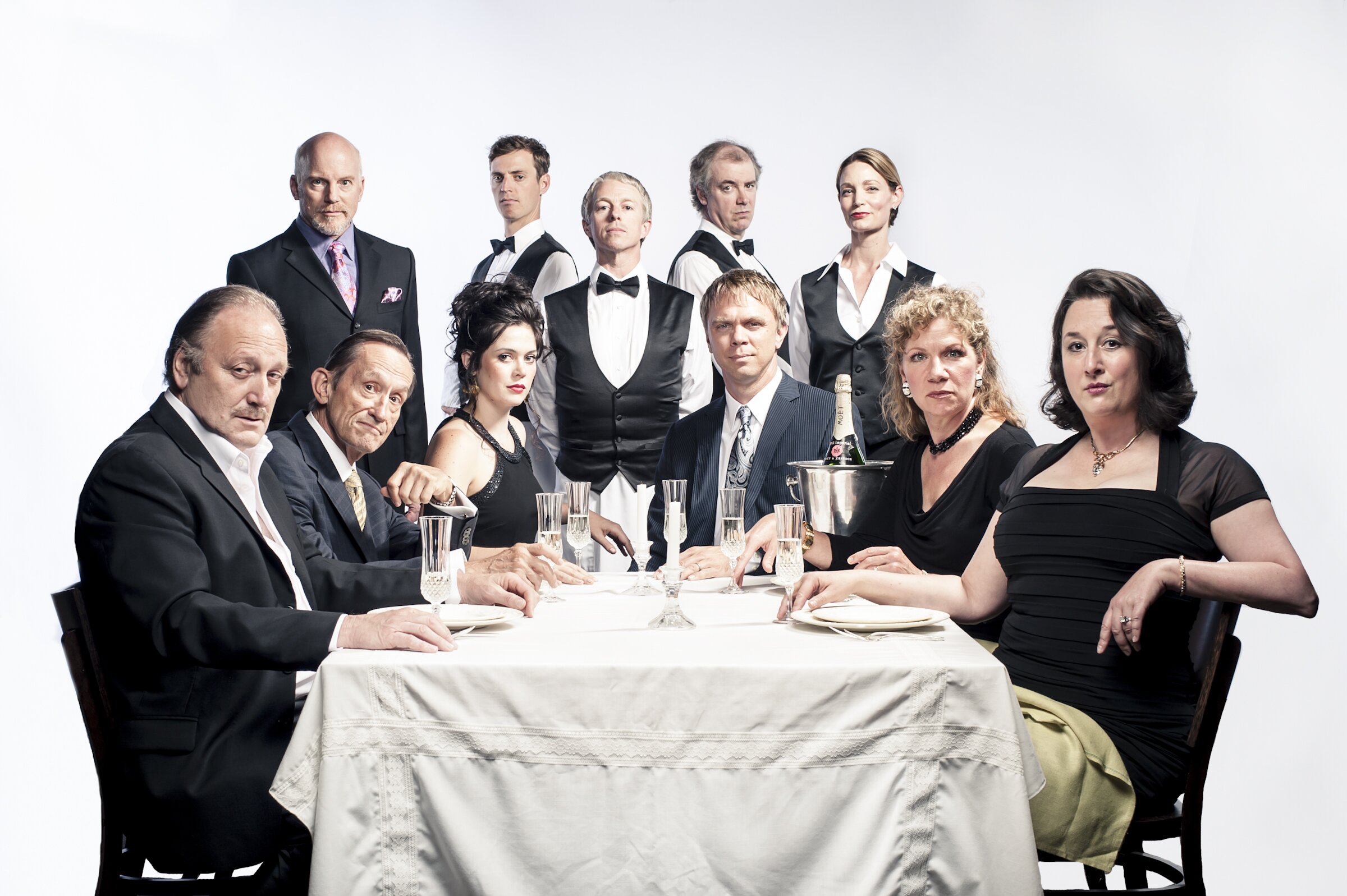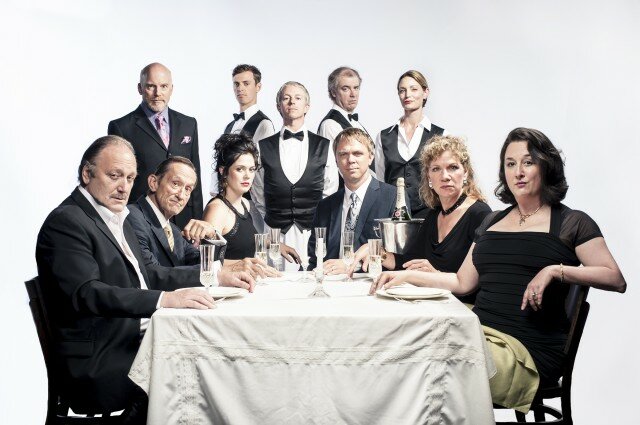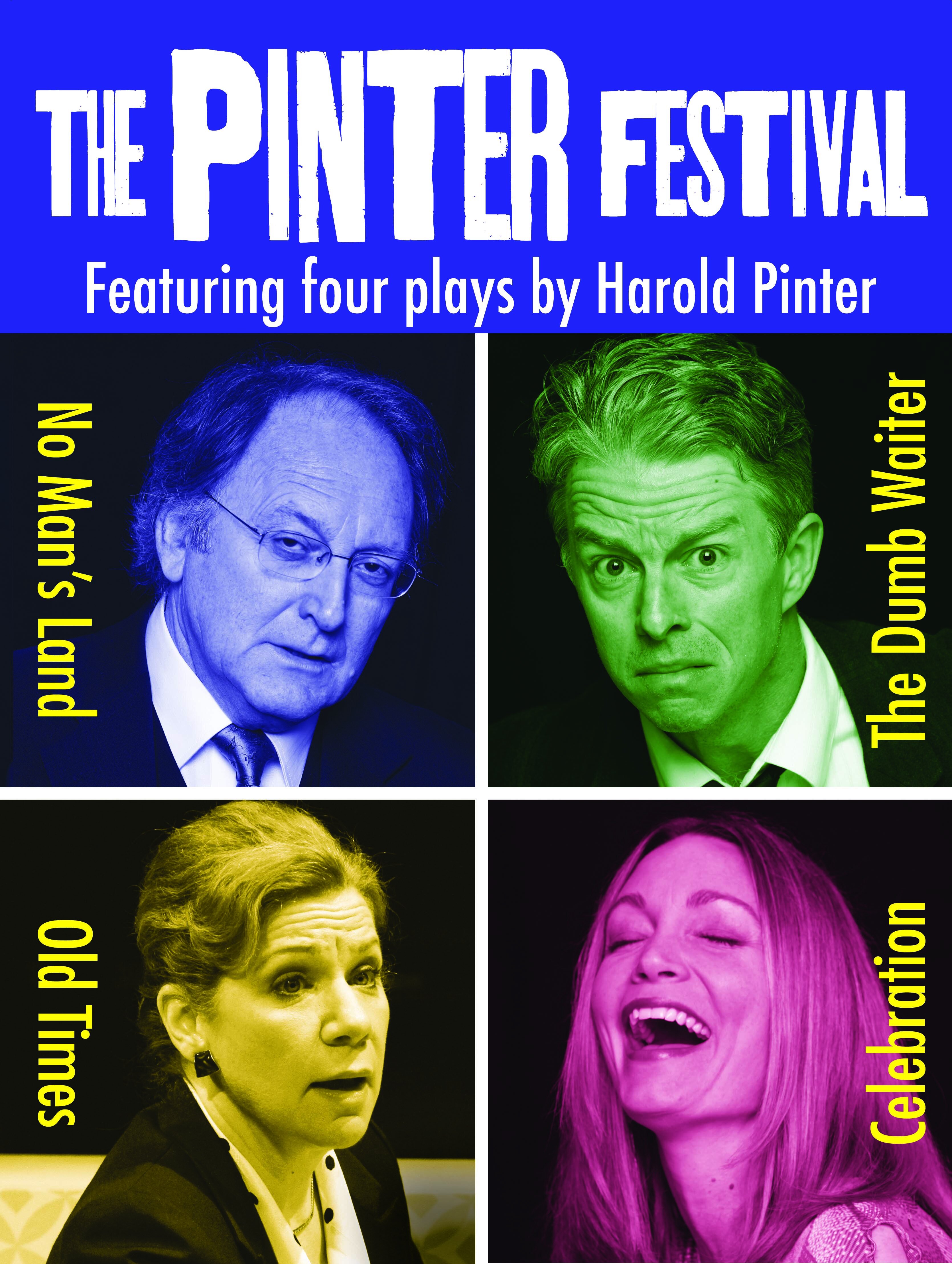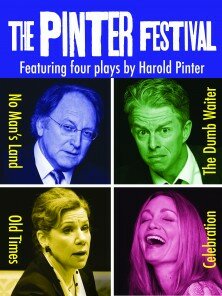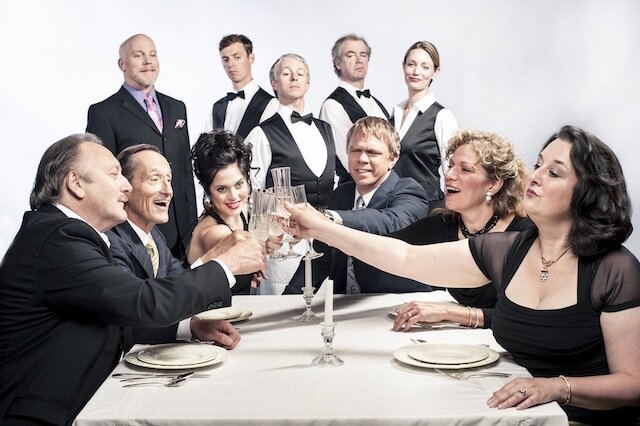Once in a while Seattle theatre surprises my jaded, fed-up sensibilities with a production so wonderful and necessary that I can hardly find any fault in it. Unsurprisingly, the newest production to make the list comes from New Century Theatre Company, a theatre company I take as seriously as my southern brethren take communion. The Trial (at INScape through April 28; tickets) is an immersive, magical production with a slew of talented artists on stage and pulling strings; a production that everyone will be talking about come next week, if they’re not already.
In a new adaptation from Kenneth Albers, Kafka’s play technically opens with Joseph K. (Darragh Kennan) seemingly under arrest with no knowledge of what crime he’s committed, who’s accused him, or why he’s being interrogated in his own home. However, the production starts well before that with cast seating audience members in small groups, asking them to line up in boxes, and leading them to seats via a circuitous path, all the while repeating “Don’t touch the red curtain” (that is impossible not to touch because it’s lining the narrow alley way).
There are many other touches to this pre-show ritual including an overhead speaker that talks to you in a pseudo calming voice about what you can and can’t do. But even in that there are contradictions, purposeful and precise, to affirm that you are about to see something very different. Take note: You are being watched. Blow your nose before the curtain pulls back.
Kennan’s Joseph K. is a desperate everyman, without agency or wisdom, striving to learn something he can’t quite grasp. Amy Thone as the ball-breaking, aging attorney Sophie Kleist simultaneously aggravates and delights — especially as she figure-eights around K. in her motorized wheel chair. And Alexandra Tavares’ Titorelli is so funny, wry, and a little dirty that I long to hear her say “jyes” one more time.
These performances are standouts, but there was no weak link in the cast, or the design. Robertson Witmer’s sound is haunting and terrifying (full disclosure: we chat on Twitter). Witmer’s sound is accompanied by an incredibly creative lighting design by Geoff Korf who utilized flashlights and practicals for ghostly and eerie atmosphere.
Under the direction of John Langs (and thanks to that impeccable adaptation by Albers), The Trial delivers a play of contradictions, metaphor, hyper-realism, and cleavage — lots and lots of cleavage. Unlike other shows where the cleavage would just be an added, “sex sells,” and hardly a plot point worth note, the choice in this production actually works. In Joseph K.’s head we can only view women two ways: 1.) sexy creatures he’d (we’d) like to bone but likely won’t even talk to outside of work, and 2.) matronly women who take charge of his (our) situation for him so he doesn’t have to take responsibility for himself.
The story can be interpreted in a number of ways and while I could invoke several historical figures and moments I thought of during the production (Rasputin is on the list), the joy of The Trial is in seeking your own meaning. There are countless metaphors, allusions, and of course contradictions. Many of these make no sense. Many of them make perfect sense. All of them are a tad pretentious. And all are a little bit brilliant. So make of them what you will.
Let me put it another way. Imagine The Trial is a door. No one is stopping you from going through that door except little nagging feelings of doubt because you’ve been been burnt before going through other doors, bad doors, waste-of-time doors. Ignore those sonsofbitches and open this damn door.
